
The work
How different might Herbert Howells’s career have been had it not been for the antics of music critic Robert Lorenz at the first performance of the composer’s Second Piano Concerto? Commissioned by the Royal Philharmonic Society and conducted by Malcolm Sargent with the notable Bach pianist Harold Samuel as soloist, the premiere in London on 27 April 1925 was a high-profile one. And so, when Lorenz stood up at the end and loudly exclaimed ‘Thank God that’s over!’, that moment hit the headlines too.
Howells was not blessed with the sort of robust character that could shake off such humiliation lightly, even if the work did also have its notable supporters. Confidence shattered, he started to turn his back on the concert hall and direct his sights increasingly elsewhere for inspiration – not least to the composers of the past and, significantly, to the world of sacred music.
This shift in direction would lead in 1932 to his Requiem, for which he took his teacher Walford Davies’s 1915 A Short Requiem as his model. A fast worker, Howells is believed to have all but finished it within four days. It was intended for the Choir of King’s College, Cambridge and its choirmaster Boris Ord, but for some reason Howells never sent it, at which point the Requiem’s trail goes cold. Three years later, however, tragedy befell the composer that would turn his world on its head, give the writing of his Requiem an eery prescience and later lead to a commonly but mistakenly held belief as to when and why he wrote it.
This story is from the December 2022 edition of BBC Music Magazine.
Start your 7-day Magzter GOLD free trial to access thousands of curated premium stories, and 9,000+ magazines and newspapers.
Already a subscriber ? Sign In
This story is from the December 2022 edition of BBC Music Magazine.
Start your 7-day Magzter GOLD free trial to access thousands of curated premium stories, and 9,000+ magazines and newspapers.
Already a subscriber? Sign In
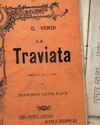
A way with words
Great operas are inextricably linked with their composer but, asks Jessica Duchen, how often do we acknowledge the important role of the librettist?

THE MAGNIFICENT SEVEN Pick a theme... and name your seven favourite examples
Conductor Domingo Hindoyan nominates the best musical depictions of anger and frustration
A glittering beacon
Until its destruction in the fire of 1936, the Crystal Palace was one of the world's most exciting music venues, and its legacy still lives on today, writes Tom Service.
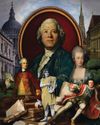
Christoph Willibald Gluck
Paul Riley traces the wandering existence of a cosmopolitan composer who made it his life's work and ambition to rip up opera's rulebook
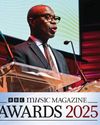
The Awards are upon us once more!
Time to vote for the best recordings of the last 12 months

LEADING FROM THE FRONT
From running efficient rehearsals to learning to speak to orchestras with clarity and empathy, an array of exciting courses for conductors has bloomed in recent years, finds Clare Stevens
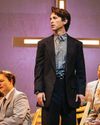
Kindred spirits
As their second opera takes to the stage, composer Gregory Spears and librettist Tracy K Smith talk to Charlotte Smith about their special partnership
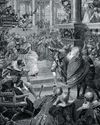
The censors' refusal to play ball drives Verdi to despair
In the early months of 1857, Verdi had Shakespeare on his mind, and specifically King Lear.
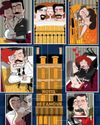
11 Bed-Hopping Composers
Jeremy Pound lifts the covers off those notorious notesmiths who found the thrill of playing away simply too hard to resist

André Rieu Violinist, Conductor
King of the Waltz, Dutch musical impresario André Rieu has taken the world by storm with his Johann Strauss Orchestra.